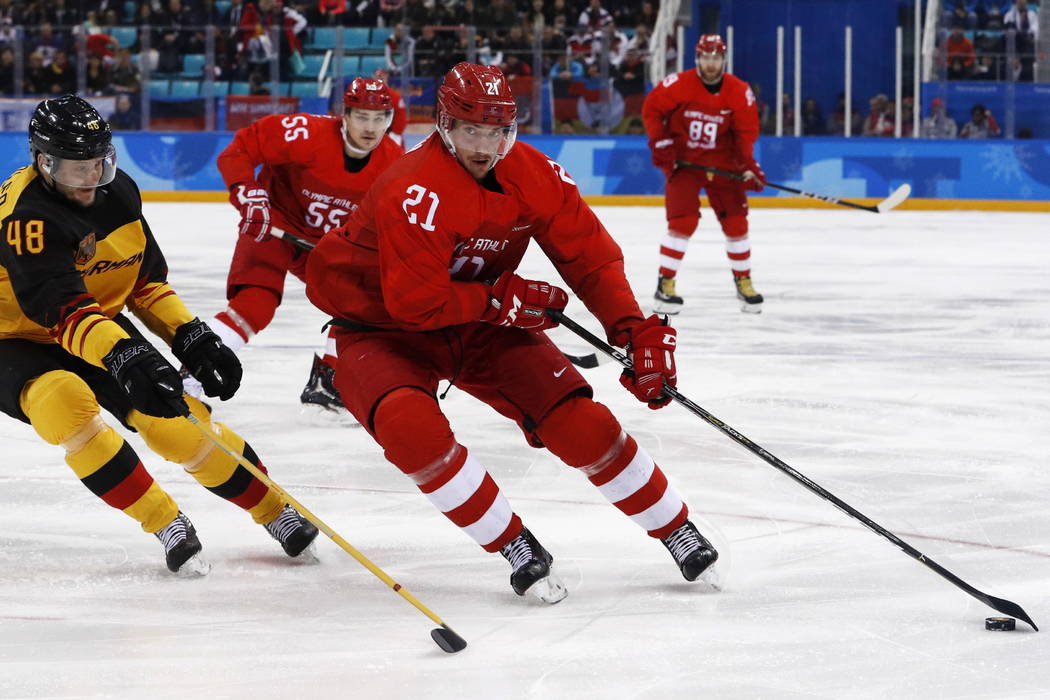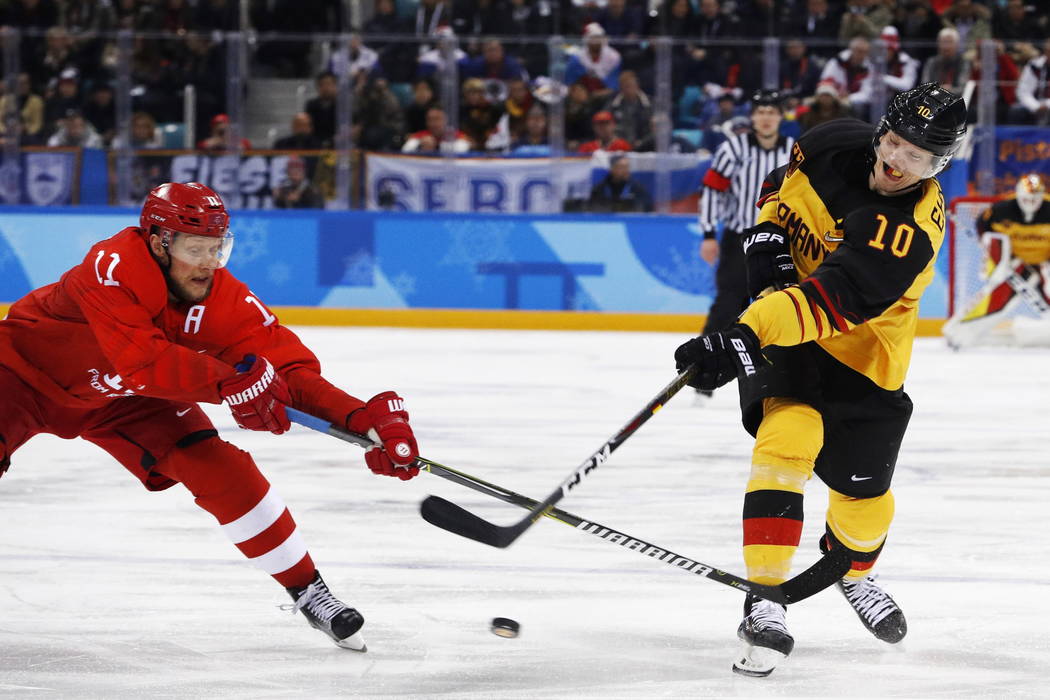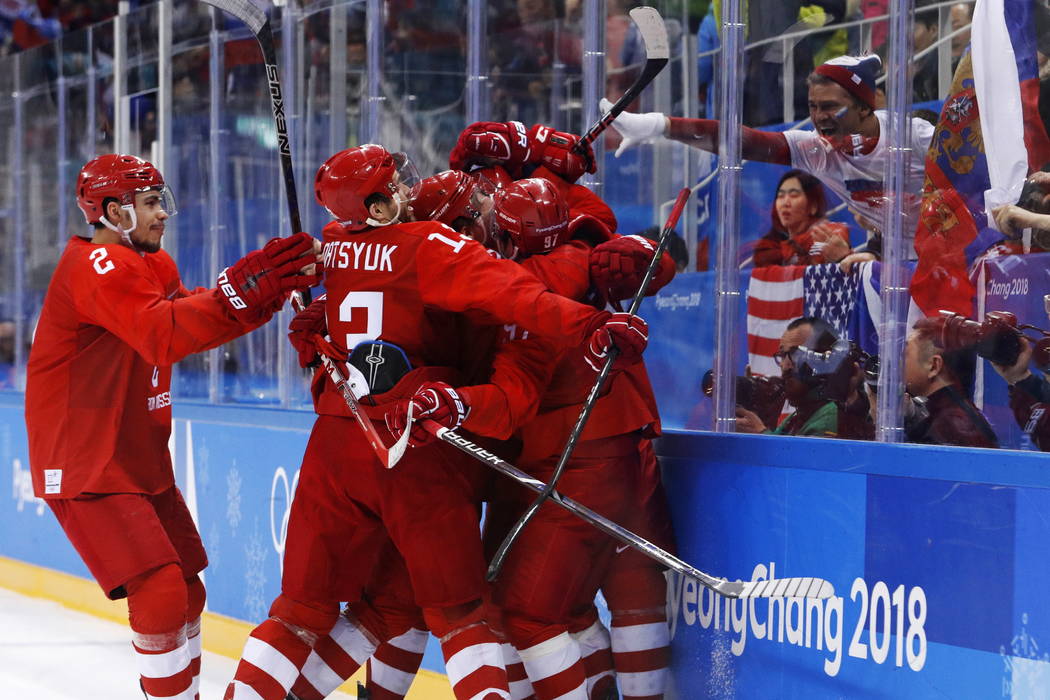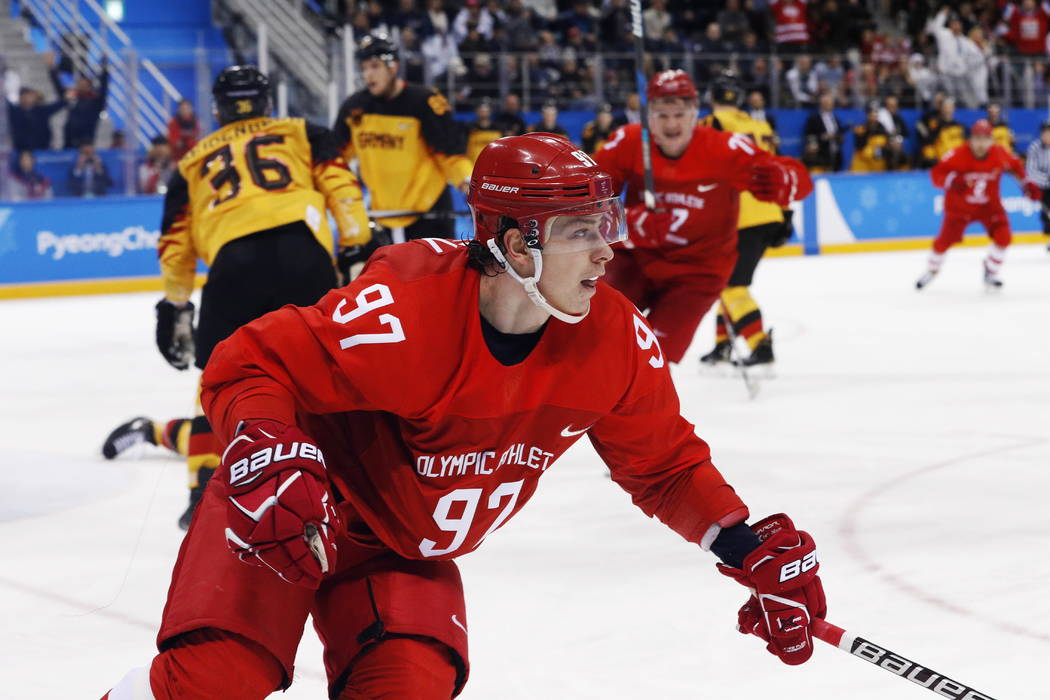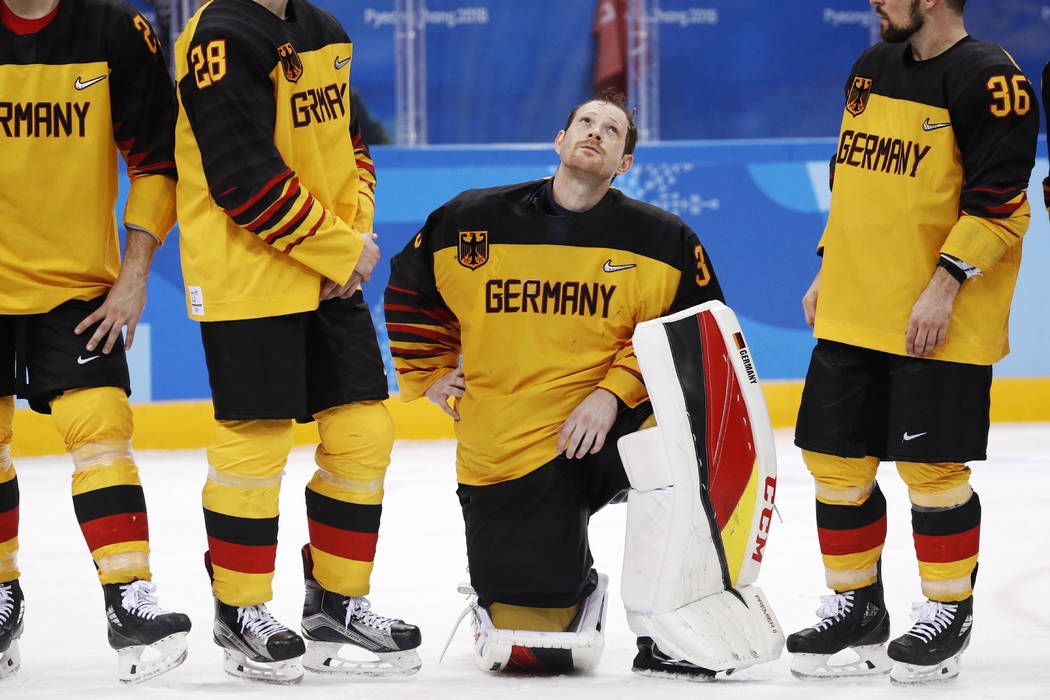Dramatic men’s hockey final may have redeemed dull Olympic tournament
GANGNEUNG, South Korea — This was an Olympic men’s hockey tournament played without NHL stars, to mostly half-empty arenas and with tepid interest in North America and in a host country still getting to know the sport.
Until the final, perhaps.
When the Russians beat Germany 4-3 in an overtime thriller Sunday to win the gold medal, they did so in an almost-full Gangneung Hockey Centre amid an atmosphere that built with the tension of the back-and-forth game.
Such an entertaining final may have at least redeemed a men’s tournament that was overshadowed for some by the political overtones of the Korean women’s unified team and by the excitement of the United States beating rival Canada for the women’s gold medal.
“The hearts of all the players on the bench stopped,” Russian captain Pavel Datsyuk said. “We were waiting for this. … It was a very emotional game and now there is a void.”
No NHL
There was a void in the Pyeongchang Games without the NHL, devaluing and sucking some interest out of men’s hockey tournament. Now it’s a matter of how the mostly listless tournament and the exhilarating gold-medal game shifts the leverage between the NHL, the NHL Players’ Association, International Olympic Committee and International Ice Hockey Federation for Beijing in 2022.
For the first time since 1994, the NHL chose not to stop its season to allow players to go the Olympics. IIHF president Rene Fasel said Saturday the NHL should start thinking about 2022 now.
“I really hope in 2019, 2020, we can have some discussion and they can make a decision,” Fasel said. “Going to Beijing in 2022 will be another opportunity to promote the game in Asia. We will then see about the possible participation of the NHL or not.”
Even as Fasel used Germany’s run to the final to say nobody in that country cares that the NHL wasn’t there, coach Marco Sturm was lamenting their absence.
“All the NHL guys should be in the Olympics,” Sturm said. “That’s just what the event is for, and hopefully in the future they will be back on Olympic ice.”
It could only help the buzz around Olympic hockey, which fell short of the anticipation for and the action of the U.S.-Canada women’s final. Even Datsyuk, Ilya Kovalchuk and the Russians being in the final didn’t do much to boost ticket sales as the IIHF announced a paid attendance of 5,075.
The fans and many athletes who went to watch Russia-Germany saw Slava Voynov score a crucial goal with 0.5 seconds left in the first period. Voynov is banned from the NHL as a result of his 2015 domestic abuse conviction but was allowed by the IOC and IIHF to play at the Olympics.
It remains to be seen if Voynov, who will turn 32 just before the 2022 Winter Games, would be allowed to play if the NHL is involved and has any say over rosters. That’s far from a sure thing, with commissioner Gary Bettman saying as recently as Saturday he doesn’t know if the NHL wants to go to China, calling it disruptive to a season.
NHL, IOC dispute
The NHL skipped Pyeongchang in part because the IOC refused to pay for insurance, travel and other expenses as it did for previous Olympics. An average attendance of less than 5,000 and sharing attention with NHL playoff races and the trade deadline in North America might be enough incentive for the IOC to play ball.
Bettman and the NHL certainly do because of interest in the Chinese market.
The Los Angeles Kings and Vancouver Canucks already played exhibition games in Shanghai and Beijing prior to this season, and the league is planning more in 2018 and beyond.
But contrary to Fasel’s wishful thinking about a quick decision, the NHL playing at the Games is a question that will likely linger until the next round of collective bargaining talks that could happen as soon as 2020 if either side opts out in September 2019.




